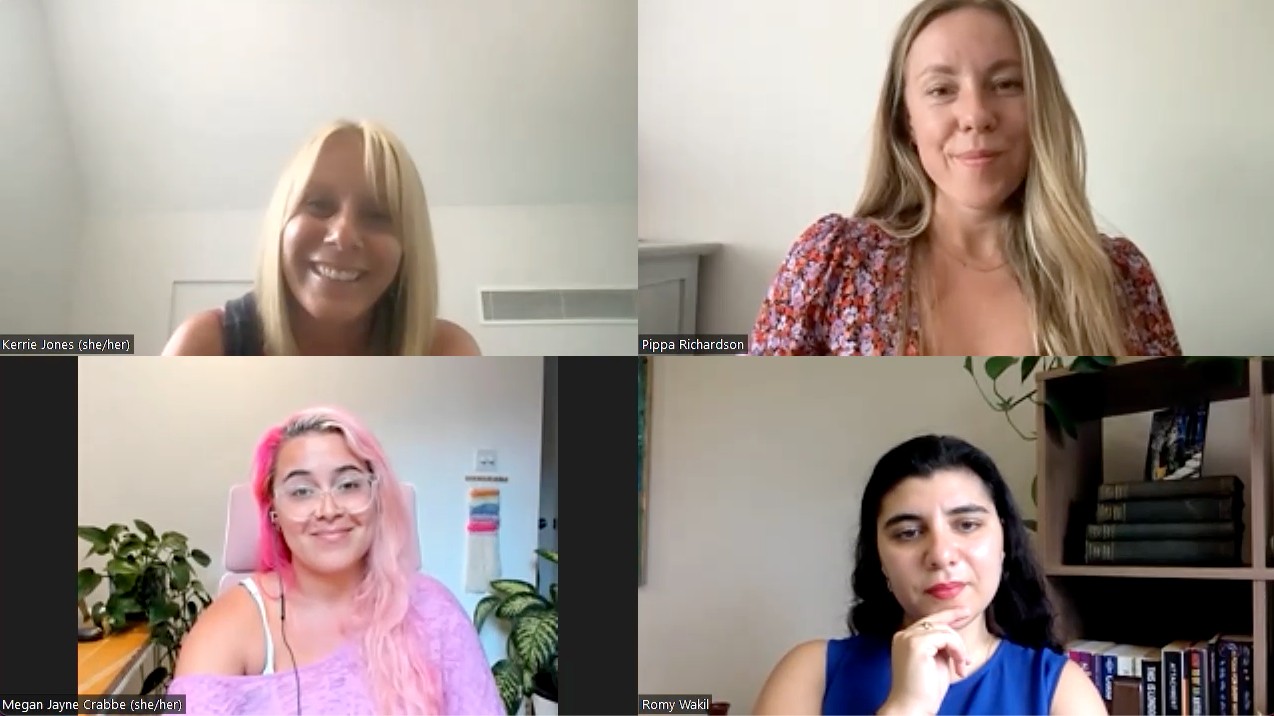“... and I said to my body, softly, ‘I want to be your friend.’ It took a long breath and replied, ‘I have been waiting my whole life for this.’”
Our relationship to our body is deeply personal. How we relate to our physical selves, and the experience we have within our own skin, is informed by so much, both explicitly or implicitly. For many, relating and finding connection again to our bodies can feel difficult, especially when an eating disorder has developed. This is why throughout June, we are exploring and honouring the stories our bodies hold with the theme – My Body, My Story.
When we live with an eating disorder, our relationship to our body can fracture. Experiences in the world or messages we receive can be internalised and go on to become a narrative for how we feel about ourselves and how we feel about taking up space – ahem, diet culture. As Pippa, Orri’s Head of Somatic Therapy, explored in a previous body image workshop…
“We come into the world as our authentic selves. The external messages and ideals we pick up along the way of life informs our “I” perspective.”
Orri & Be Well Collective: Body Image Workshop
Pippa shared this can feel like a backpack that we begin to pack when we are little. As we age and reach our adolescence, the backpack can begin to feel heavier and heavier the more we carry outer messages of how we ‘should’ our ‘ought’ to be. The weight can begin to feel unbearable as we reach adulthood.
Earlier in June, we explored in a webinar the effects of external messaging and influence – such as diet culture, society and generational ideation – and how this impacts the bodies that represent our stories today. Orri’s senior clinicians came together in a panel discussion based on themes surrounding body image, anti-oppressive treatment of eating disorders and recovery. We were grateful to be joined by a special guest and prominent mental health and body image speaker, Megan Jayne Crabbe.

“Diet culture tells us that if we ignore our body’s hunger signals or if we push ourselves and push our limits and put our energy into shrinking ourselves, only then will we be connected to our body. Actually, all these practices that diet culture teaches us separates us from our bodies. It separates us bit by bit, where we ignore our needs and alienate ourselves from our bodies. So actually, there is no way we are going to ‘feel great’ in our body as we won’t ‘feel great’ in our body at all. The only way to heal is to ‘be back’ in our bodies. To meet them where they are at and to reconnect with our needs.”
Megan Jayne Crabbe
Our minds and body co-exist. Though, it can be hard to make contact with the feelings and memories we have in the body.
It takes gentleness, tenderness, patience and pacing. We need to affirm within ourselves that the way that we relate to our bodies is often about protection – perhaps the feelings in our body were once so awful that we decided we could no longer ‘be there’. We must offer that protective impulse kindness and gratitude for doing what it needed to do at the time.
However, our bodies hold such wisdom. It’s said that emotions are the language of the mind, and feelings are the language of the body. In our modern world we’re so quick to cognitively engage with our lives that day-to-day existence can become a ‘fight’ – “if only I could think my way out of this”. Often, we forget that there’s very old, primal parts of ourselves that are still experiencing that threat as the approaching attack of a lion.
We must offer that protective impulse some kindness and gratitude for doing what it needed to do at the time. Our bodies store so much of who we are and how we feel. Use these words as your reminder to listen to what your body is trying to tell you, and meet it with compassion.
The truth is, you deserve to find safety in your body. Your space in this world is deserved. You are allowed to be. Eating disorder recovery is a journey that can aid your reconnection with yourself again. The more you learn and uncover about yourself, the more familiar ‘you’ will be.
This month we’re inviting the recovery community to consider: what’s your body’s story? What story do you want it to have?










